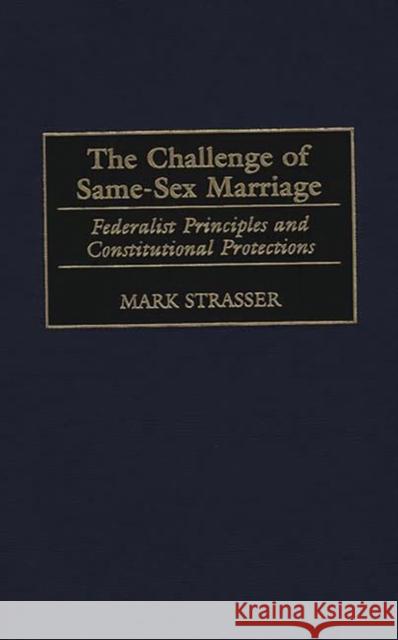The Challenge of Same-Sex Marriage: Federalist Principles and Constitutional Protections » książka
The Challenge of Same-Sex Marriage: Federalist Principles and Constitutional Protections
ISBN-13: 9780275966249 / Angielski / Twarda / 1999 / 272 str.
In November 1998, the Hawaii and Alaska electorates voted to amend their state constitutions so that same-sex marriages would not have to be recognized. Rather than end the controversy surrounding same-sex marriages, the passage of these amendments will only spur more litigation, because the referenda themselves implicate constitutional guarantees and because amending a state constitution cannot lessen federal constitutional protections. Since same-sex marriages promote many of the same individual and state interests that opposite-sex marriages do, states will be unable to justify their same-sex marriage bans if those rationales are closely examined. When challenged, the recent constitutional amendments in Hawaii and Alaska may well be held unconstitutional by the state supreme courts on federal constitutional grounds, although ultimately the United States Supreme Court will likely be asked to resolve the relevant issues.
Suppose that state same-sex marriage bans are held not to violate federal constitutional guarantees, but that one state nonetheless recognizes such unions. The other states will be permitted to refuse to recognize marriages celebrated in that state only if certain conditions have been met. Contrary view notwithstanding, the law of nature exception will not apply in this case. Further, even the Defense of Marriage Act will likely not afford states the right to refuse to recognize any and all same-sex marriages validly celebrated in sister states.











